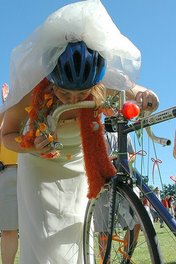addendum
this is a partial reprint of an email i just sent to my beloved Crazy Aunt Laurel. she had asked me how the tsunami had disrupted my classes, and i unintentionally started meandering down a winding pathway of my own design. i apologize for broaching the topic of the tsunami again and hope you will forgive the indulgence into recent memory. here goes:
to answer your question about school, there was eerily little disruption with school as a result of the 26th. i thought i was pretty well over culture shock for thailand until i witnessed the reaction to the tsunami. students were making jokes just a few days after the wave hit. one teacher asked her class what they were doing for the weekend, and a rather precocious student said he was going to phuket and then laughed. the teacher, who had just been to the hospital and had talked to some of the victims, got upset and told the student in no uncertain terms that it was not appropriate to make jokes when other people have lost families and friends and livelihoods. she asked him again where he was going, and he again said (though with much more serious a face) that he had to go to phuket with his family for his uncle's memorial. his uncle had died in the tsunami. the teacher felt awful, of course, but i think many of the foreign teachers have been trying to discern mere jest from the thai way of dealing with death. the thai and western traditions of demonstrating grief are so incredibly different. students are not shielded from it at all. some of my M4 students went to the hospital to act as translators for foreign patients, and they received no orientation or counselling for what they saw (and some of it was GRIM, i can tell you). a wonderful new friend (whom you would just love) spent two weeks working at the crisis center in krabi, which was a chinese temple converted to an office inside and an open-air morgue outside. students from krabi town were asked to help people search for and identify the bodies of loved ones. alfy's student was on koh phi phi during the tsunami and saw people washed away near her, and dead bodies littered the ground after the wave receded. when she told the story to the class, she just giggled and shrugged.
i still don't know how to approach the subject with people i know because our customs of demonstrating grief are so very dissimilar. one friend had a number of sisters on phuket and koh phi phi, and i stopped by a few days after the event to inquire after her sisters. she got quite flustered and replied that three of them were still missing, then quickly tried to change the subject by offering me clothes (i have never been the best dresser). i left feeling very bad at having asked and therefore reminding her of her worries. (the story has a happy ending in that her 3 sisters called her the next day).
i felt the best way to discuss the matter with my students was via a blood donation discussion. i felt it was pretty nonthreatening, and indeed they had never learned about it before and asked a lot of great questions, and they were much more focussed and serious than when the tsunami itself was brought up in conversation. we talked about what happens and how it effects the body and how it can help people and why it is important to do, even if you are a little afraid of needles. when i gave blood, two of my M4 students came with me, so i asked them to help me talk about it when we discussed it in their class. i felt it was really valuable, and it was the only time i felt i was really communicating freely with my students about the issue.
golly, that was a lot longer than i had intended. sorry! if you don't mind, i might actually put that on my online journal. cultural customs are so interesting, aren't they?


No comments:
Post a Comment